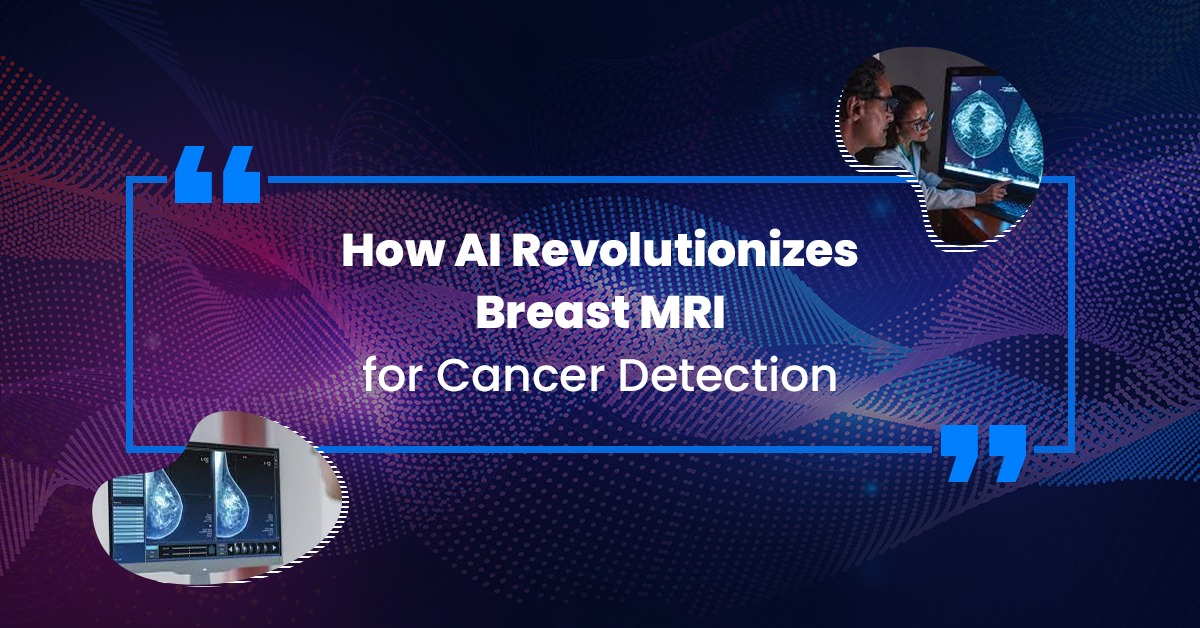Breast cancer remains one of the most prevalent cancers affecting women worldwide. Early detection is crucial for successful treatment and better outcomes. Traditional screening methods like mammography have limitations, often missing early-stage cancers, particularly in women with dense breast tissue. However, the integration of Artificial Intelligence (AI) into breast Magnetic Resonance Imaging (MRI) is revolutionizing cancer detection, increasing its accuracy and effectiveness four-fold.
The Power of AI in Breast MRI
AI algorithms, particularly those based on deep learning, can analyze vast amounts of imaging data quickly and accurately. These algorithms are trained on thousands of breast MRI scans, learning to identify patterns and anomalies that might be indicative of cancer. This training allows AI to recognize subtle differences in tissue that may be overlooked by the human eye.
Enhanced Accuracy and Reduced False Positives
One of the significant benefits of AI in breast MRI is its ability to enhance diagnostic accuracy. Studies have shown that AI can detect breast cancer with higher sensitivity compared to radiologists alone. By cross-referencing current scans with historical data and using advanced pattern recognition, AI can identify cancers that might be missed by human observers.
Moreover, AI significantly reduces the rate of false positives. Traditional MRI screenings can sometimes result in false alarms, leading to unnecessary biopsies and anxiety for patients. AI’s precision in differentiating between benign and malignant tissues helps minimize these occurrences, ensuring that only those who need further testing undergo invasive procedures.
Improving Efficiency and Workflow
The integration of AI into breast MRI not only improves accuracy but also enhances the efficiency of the screening process. Radiologists can use AI as a second reader, which speeds up the interpretation of scans. This collaboration allows radiologists to focus on more complex cases, knowing that the AI has already flagged potential issues for further review.
Additionally, AI can assist in standardizing the reporting process. By providing consistent and accurate analyses, AI helps reduce variability in interpretations between different radiologists and institutions. This standardization ensures that patients receive the same quality of care regardless of where they are screened.
Personalized Screening and Treatment
AI’s capabilities extend beyond detection. By analyzing a patient’s imaging data alongside their medical history and genetic information, AI can help tailor personalized screening and treatment plans. For instance, AI can identify women at higher risk of developing breast cancer and recommend more frequent or advanced screening methods.
Furthermore, AI can assist in monitoring the progression of the disease and the effectiveness of treatments. By comparing sequential MRI scans, AI can detect subtle changes in tumors over time, providing valuable insights into how well a treatment is working and whether adjustments are needed.
Insights from the ScreenTrustMRI Trial
A study published on July 8 in Nature Medicine by researchers led by Dr. Fredrik Strand from the Karolinska Institute in Solna, Sweden, provides compelling evidence for the effectiveness of AI in breast MRI. The ScreenTrustMRI trial demonstrated that using an AI-based score to select a small proportion of women for supplemental MRI after a negative mammogram detected many cancers that traditional methods missed. This approach makes the cost per cancer detected comparable to that of screening mammography.
Dr. Strand explained, “We found that it is possible to make a very precise selection of women for supplemental MRI based on AI analysis of the negative screening mammograms.” This precision is particularly crucial for women with dense breast tissue, where conventional mammography often struggles.
The trial involved offering supplemental MRI to women with high AI scores from negative mammograms. The results were impressive, with cancer detection rates significantly higher than previous studies, showcasing AI’s potential to transform breast cancer screening.
Future Prospects
The future of AI in breast MRI is promising. Ongoing research aims to refine these algorithms further, making them even more accurate and reliable. The integration of AI with other imaging modalities, such as mammography and ultrasound, is also being explored to provide a more comprehensive approach to breast cancer detection.
Moreover, the development of AI-powered tools that can be used in low-resource settings has the potential to democratize access to advanced cancer detection technologies. This can be particularly beneficial in areas where there is a shortage of specialized radiologists.
Conclusion
AI is undeniably transforming breast MRI, significantly enhancing the detection and diagnosis of breast cancer. By increasing accuracy, reducing false positives, improving workflow efficiency, and enabling personalized care, AI is poised to play a crucial role in the fight against breast cancer. As technology continues to advance, the collaboration between AI and radiologists will become even more integral, ensuring that more women have access to early and accurate cancer detection.
Embracing these technological advancements will ultimately lead to better outcomes and save more lives, highlighting the profound impact of AI in the realm of breast cancer screening and diagnosis.


